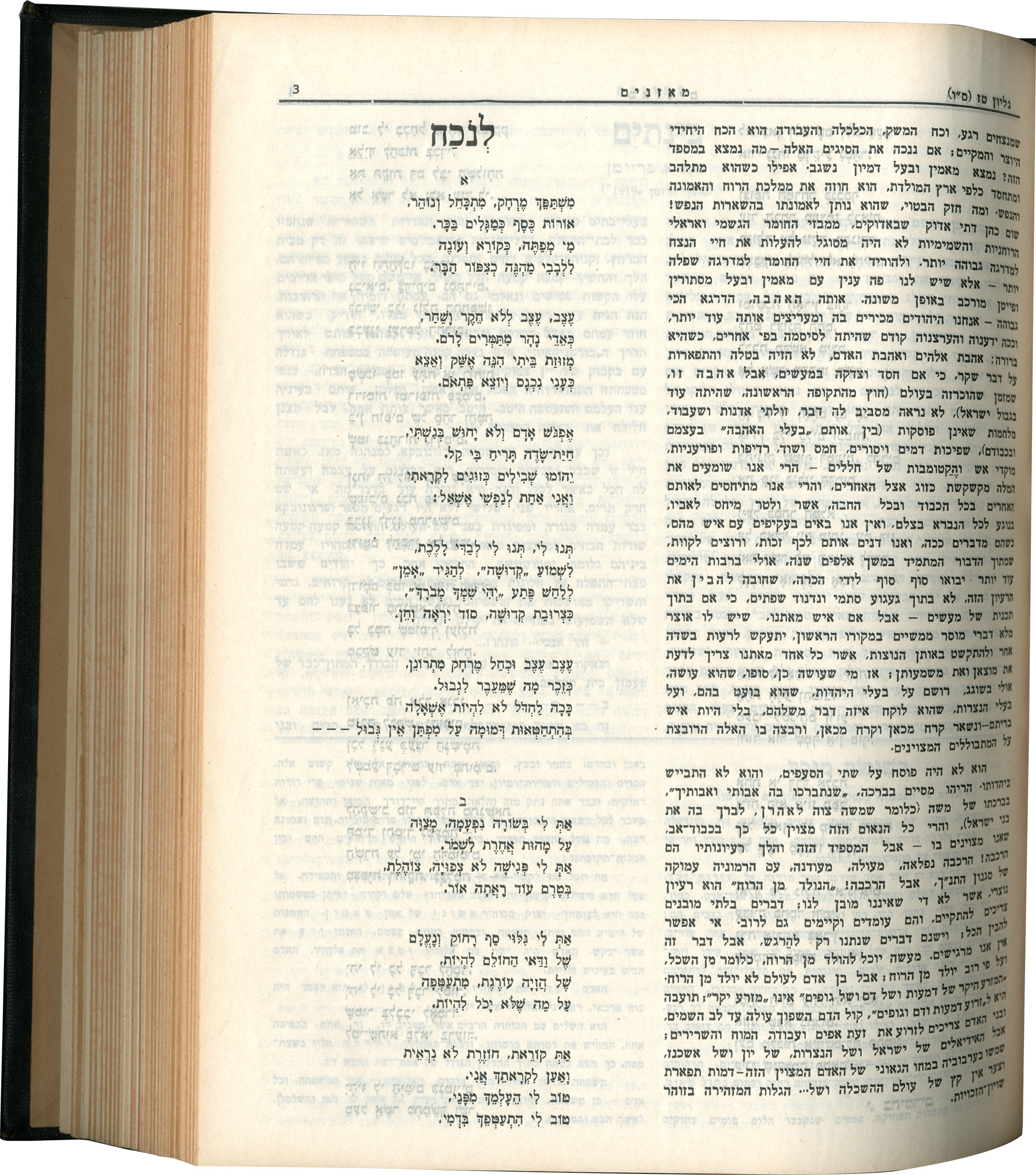Speaking from one woman to another, this poem sets up the desire for an encounter that the poet forecloses in advance. The first stanza speaks of an "un-expected encounter" that has not yet happened ("ere still the light it did see"). The second stanza invokes "a certainty that dreams to be, " yet declares it "will not be able to be." These paradoxical statements thus narrate a promise and its negation. At the same time, this archival material, the poem's first appearance, reveals another story of poetic encounter and intertextual dialogue.
The poem was written by Hebrew poet Yocheved Bat Miriam (1901-1979) and was published on August 21st, 1930, in Moznaim, an Israeli literary journal active to this day. However, this poem is little known in its original form, for until recently it was only circulating in its 1963 version. This version was part of a collection edited by the poet, who took a vow of literary silence after her son Zuzik was killed in 1948. It was only in 2014 that a full version of her collected poetry was published, including a version of this poem almost identical to the original, save for one difference: the dedication to the Hebrew poet Rachel Bluvshteyn (1890-1931). The poem's version with the dedication comes from Bat-Miriam's first book, Merakhok, in 1932. Because this book was published shortly after Rachel's death in 1931 it has been taken to be a response to her death, explaining the impossibility of the address in the poem itself.
And yet, the original version, found in the Katz library collection, reveals a poem published before Rachel's death and not yet dedicated to her. Instead, the poem declares a desire, which is then answered in Rachel's own poem, "Ivria," published in the Hebrew paper Davar on November 14th 1930, and dedicated to Bat-Miriam. Bat-Miriam's dedication to Rachel is thus already an answer, coming after Rachel's poem, continuing a dialogue, much like the one the poem describes in the third stanza: "you call, repeat, unseen/and answering you is me." But in this dialogue not just Rachel is implicated, but also the reader, for the Hebrew word for "call" is the same word as for "read." Thus, instead of "waiting in vain," the poem's call reaches us, and our reading, kri'a, is a call in return. Here the poem's "you" [at] and "I," meet, against the odds, against history.

